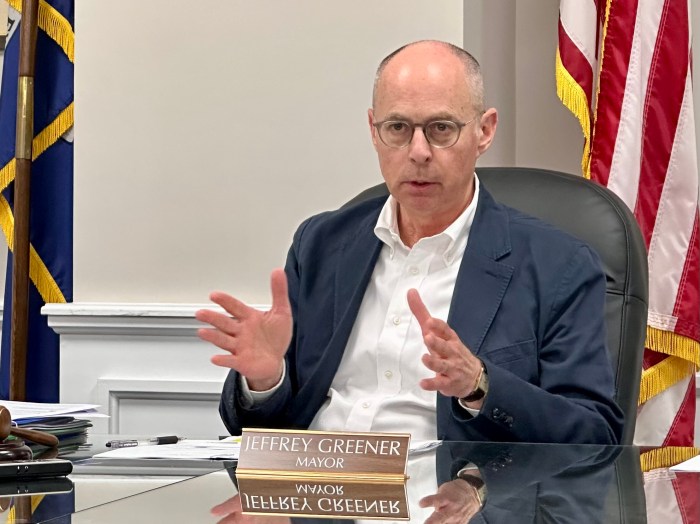A Nassau Supreme Court judge granted a former Great Neck Park District candidate the ability to review absentee ballots the park district refused to hand over in the conclusion of a lawsuit alleging election tampering by the park district.
“In today’s world, right now, election integrity is front and center,” Gordon Charlop, the former candidate who filed the lawsuit, said. “People want to know that the will of the people will be respected.”
The lawsuit alleged that the district has conducted “improper, unfair, biased and illegal” election procedures.
Judge Eileen Daly-Sapraicone in Nassau Supreme Court decided in Charlop’s request to have access to the ballots.
The lawsuit requested that the election be tossed out entirely, as well as the ability to review the ballots.
The courts determined that an election can only be invalidated by the attorney general, with both parties agreeing to remove that component of the lawsuit in March, according to court documents.
But on Monday, the judge delivered her decision on the case granting Charlop’s request that the park district allow him to review all ballot applications, including the voter’s name, signature and information regarding the delivery of the ballot, all in-person ballots, all absentee ballots, including the name and signature on the absentee ballots, and voting machine tapes.
While Charlop is able to review these documents, he must do so in the presence of a Great Neck Park District employee and can not remove them from their office.
“While the Park District regrets the diversion of resources, including taxpayer funds, to defend this litigation, we are gratified that the Court protected the privacy and anonymity of our residents and refused Charlop’s attempt to invalidate the election,” the Great Neck Park District Board of Commissioners wrote in a statement.
Charlop said he is pleased with the results.
Charlop, who lost to Park Commissioner Tina Stellato in the 2023 election, filed the lawsuit in State Supreme Court in Nassau County on Dec. 29, 17 days after the election.
According to data from the park district, Stellato won re-election in the race with 1,580 votes and Charlop received 710.
Charlop garnered about 47% of all in-person votes but fell behind in absentee votes. He received 69 absentee votes, while Stellato received 861.
Charlop questioned the high number of absentee ballots.
The lawsuit alleges the park district election conducted inaccurate balloting, which led to Charlop losing the race.
It alleges the park district’s handling of absentee balloting did not abide by the law in permitting individuals to vote absentee when they may not have met the requirements to do so, as well as harvesting these ballots to be filled out by someone other than the voter.
Charlop also questioned in the lawsuit the reporting of votes from a voting machine that had broken down amid polling, speculating about 20 votes may have been lost, as well as district voting maps that omitted about 500 eligible voters.
Charlop said these components may have cost him the election.
In the bigger picture, Charlop said the lawsuit is to fight for election integrity. He said that due to the perception of the park district pre-determining election results, individuals no longer sought to run.
Many people before him sought to review the ballot information, Charlop said, but all were denied as he was – until he filed the lawsuit and the judge rendered her decision in favor of him.
While Charlop said he has not yet reviewed the ballots, he said he intends to turn over any improper election conduct he may find to the attorney general, who can invalidate an election.
The park district asserted its elections are fair.
“Park District elections are conducted fairly, openly, and lawfully by our dedicated staff, even as they endure less than exemplary conduct by some participants,” the Park District Board of Commissioners wrote in a statement. “Our residents know that they can vote by machine (as 1,360 did in 2023), or by absentee ballot (as 930 did in 2023) without intimidation, and that the Park District will defend those interests when threatened.”
































